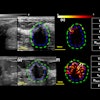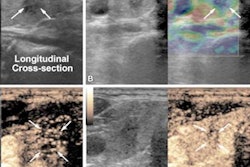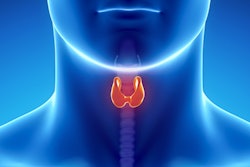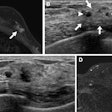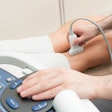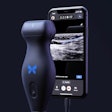Dear Ultrasound Insider,
AI continues to show its potential in ultrasound imaging, whether it be improving interpretation accuracy, cutting down on exam times, or even raising the confidence of nonexpert ultrasound users.
One recent study showed that it can do all three. A Vietnamese research team prospectively tested its lung ultrasound AI algorithm and found that it increased accuracy by 25% in a cohort of clinicians from the intensive care unit. Read more about this tool and how it works in this edition's Insider Exclusive.
Speaking of AI, a team from Shanghai Jiao Tong University in China found that rule-based AI assistance, which uses more diverse datasets in terms of hospitals, vendors, and regions, improves thyroid cancer diagnosis by radiologists.
Researchers who attended the recent Society for Imaging Informatics in Medicine (SIIM) annual meeting in Austin, TX, also had the opportunity to see AI's potential in ultrasound. A team at the meeting presented findings showing that deep-learning algorithms can help with interpretation of transthoracic echocardiography exams.
Another team reported success with an algorithm when it came to identifying breast cancer early on breast ultrasound. The group found that its deep-learning algorithm could detect subtle elements and achieve high diagnostic performance.
Plus, check out the following recent ultrasound stories:
- Chinese researchers found that their risk prediction model, which uses multimodality ultrasound, outperforms TI-RADS when it comes to evaluating thyroid nodules.
- A University of Vermont team reported that ultrasound is not being used as much on women who present for breast cancer screening and are at risk of mammography screening failure due to other risk factors beyond breast density.
- Japanese researchers found that point-of-care ultrasound can help identify the cause of shock in circulatory failure.
- A team based in Seoul, South Korea, reported that patients who receive a substandard ultrasound visualization score have a higher risk of developing hepatocellular carcinoma.
Find more articles like these by regularly visiting your Ultrasound Community!




